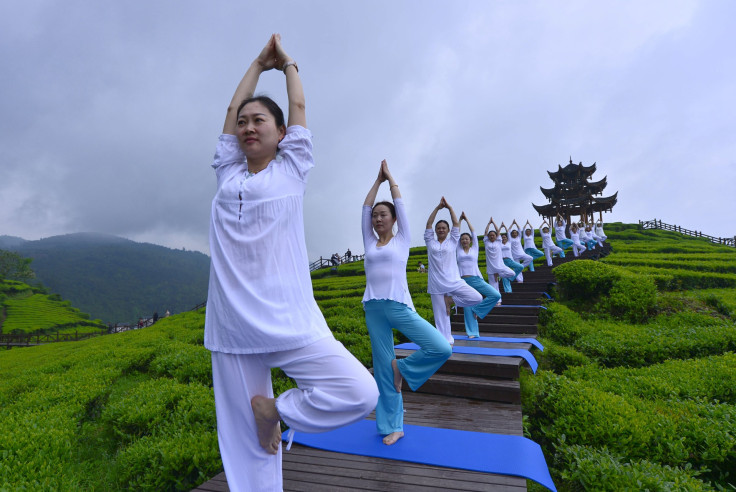Alzheimer’s disease: Australian and US scientists suggest yoga and meditation over memory exercises to combat the degenerative disease

If scientists from Australia and US are to be believed, the deadly degenerative disease Alzheimer’s can be combated more effectively with yoga and meditation than with mental/memory exercises. The UCLA-led team of neuroscientists brought out this broader benefit of yoga, apart from inner peace and flexibility, after studying 25 volunteers over the age of 55 who reported memory issues.
The scientists compared both approaches and found out that after three months, both helped the volunteers improve verbal memory skills such as remembering word list and names. However, yoga had added benefits on the volunteers as it enhanced visual-spatial memory. This type of memory comes into play during navigation and recalling locations during driving or walking. Moreover, yoga reduced anxiety to a great extent.
The three-month yoga course helped the volunteers minimise emotional and cognitive problems that precede many forms of dementia and also Alzheimer’s. Thus, the study, which appears in the Journal of Alzheimer's Disease, was able to prove that yoga is better than memory enhancement exercises that are considered the gold standard of mild cognitive impairment. People having mild cognitive impairment are two and a half times more likely to develop various forms of dementia and also Alzheimer’s.
Out of the 25 volunteers, 11 received weekly hour long memory enhancement exercises that included crossword puzzles and computer-based programs. The remaining 14 were given hour-long yoga sessions once a day and they practised Kirtan Kriya meditation every day for 20 minutes.
“Historically and anecdotally, yoga has been thought to be beneficial in ageing well, but this is the scientific demonstration of that benefit. We're converting historical wisdom into the high level of evidence required for doctors to recommend therapy to their patients,” said Harris Eyre from University of Adelaide, who is also the lead researcher, in a statement.
The form of yoga volunteers were made to perform focused on meditation, breathing and chanting and also poses for flexibility and strength. Kirtan Kriya meditation involved hand movements, chanting and visualisation of light. In India, this kind of meditation has been used for ages to treat older adults experiencing mental decline. Yoga also increased the volunteers’ coping capabilities and improved mood and anxiety problems.
Eyre along with Helen Lavretsky, professor in residence in UCLA's department of psychiatry and the study’s senior author, studied the participants for 12 weeks and arrived at this conclusion.
“If you or your relatives are trying to improve your memory or offset the risk for developing memory loss or dementia, a regular practice of yoga and meditation could be a simple, safe and low-cost solution to improving your brain fitness,” Lavretsky said.
Although connectivity changes were seen in brains of both groups, they were significant for the yoga group statistically. The memory improvements also coincided with altered neural activity. This was monitored using functional magnetic resonance imaging (fMRI) brain scans.





















